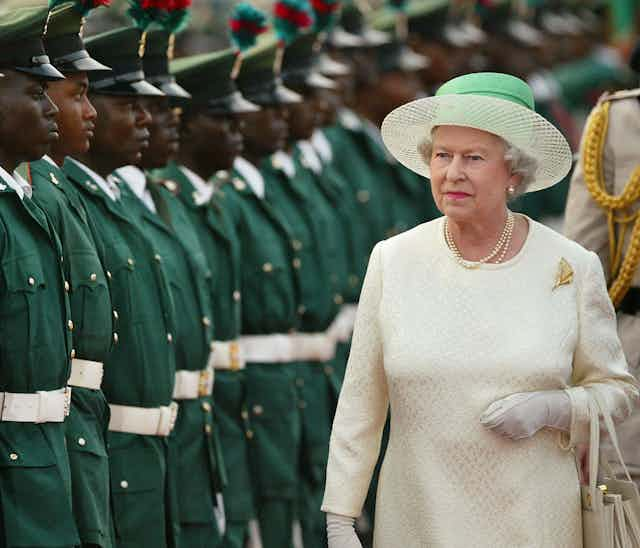At Don’t Call Me Resilient, we’ve been busy planning season 4 of the podcast, which starts to roll out in November. We’re even starting to think about season 5. But we decided to stop production to talk about something we felt we couldn’t ignore.
We’ve watched this incredible spectacle around the Queen’s death and public outpouring of support and love for the British monarchy.
Here in Canada, Queen Elizabeth was the official head of state and her funeral this week was made a federal holiday. In Ontario, the Minister of Education directed schools to conduct a moment of silence “to recognize the profound impact of Queen Elizabeth II’s lifelong and unwavering devotion to public service.”
And yet next week, those same children will be exploring the history of Indian Residential Schools and the immense ongoing damage of that system — started and long supported by the Crown.
In the middle of this outpouring of love and grief for the Queen — and the monarchy she represented — not everyone is feeling it. Not everyone wants to mourn or honour her or what she represents.
And there are a lot of reasons why.
For example, the head of the Assembly of First Nations, RoseAnne Archibald told CTV News that the Royal Family should apologize for the failures of the Crown …“particularly for the destructiveness of colonization on First Nations people.”

Another example came from Uju Anya, professor at Carnegie Mellon University, who posted a tweet in which she identified the Queen as overseeing a “thieving raping genocidal empire.”
To explore these ideas further, we reached out to two scholars who are regular contributors to Don’t Call Me Resilient. Both say that the Queen’s death could be a uniting moment of dissent for people from current and former colonies.
Veldon Coburn is Assistant Professor at the Institute of Indigenous Research and Studies at the University of Ottawa where he teaches a class called Colonialism, Territory & Treaties. He is Anishinaabe, Algonquin from Pikwàkanagàn First Nation and the co-editor of Capitalism and Dispossession.
Cheryl Thompson is Assistant Professor of media and culture at the School of Performance and the Director of the Laboratory for Black Creativity at Toronto Metropolitan University. She is the author of Uncle: Race, Nostalgia, and the Politics of Loyalty.
Listen and Follow
You can listen to or follow Don’t Call Me Resilient on Apple Podcasts, Google Podcasts, Spotify or wherever you listen to your favourite podcasts. We’d love to hear from you, including any ideas for future episodes. Join The Conversation on Twitter, Facebook, Instagram and TikTok and use #DontCallMeResilient.
In the Conversation
Queen Elizabeth II: the politics of national mourning left no space for dissenting voices
Decolonize the Queen’s funeral: Why it shouldn’t be a national holiday in Canada
Colonialism was a disaster and the facts prove it
Cutting ties to the monarchy could loom on the horizon in Canada
Additional Sources
“No, I do not mourn the Queen,” Toronto Star by Shree Paradkar

The series is produced and hosted by me, Vinita Srivastava. Our senior producer is: Lygia Navarro and Jennifer Moroz is consulting producer. Shout out to our newest staff members: Dannielle Piper is a producer. Rukhsar Ali is an assistant producer. Rehmatullah Sheikh is our sound mixer. Ateqah Khaki is helping out with marketing and visual innovation. And Scott White is the CEO of The Conversation Canada.

